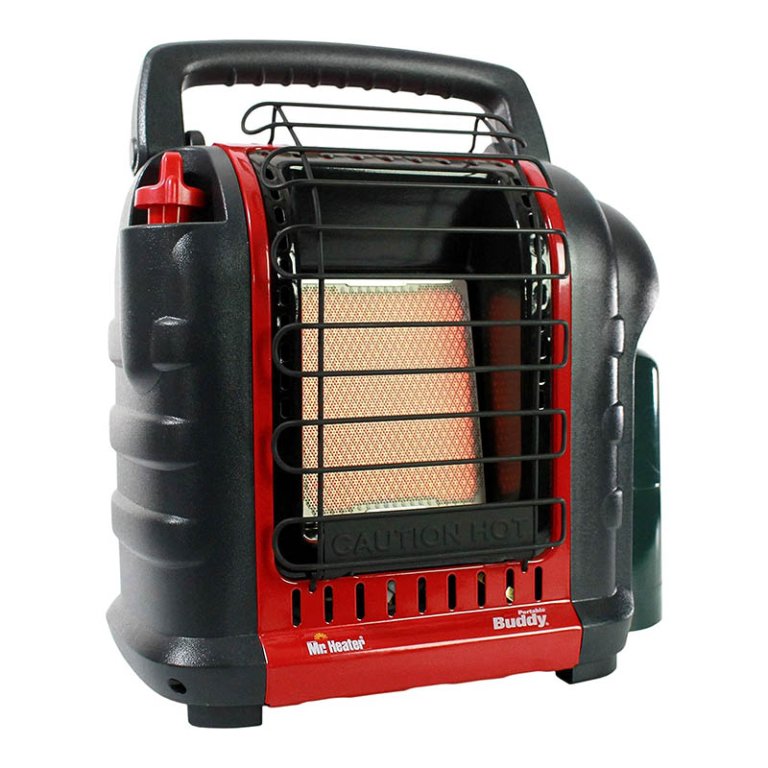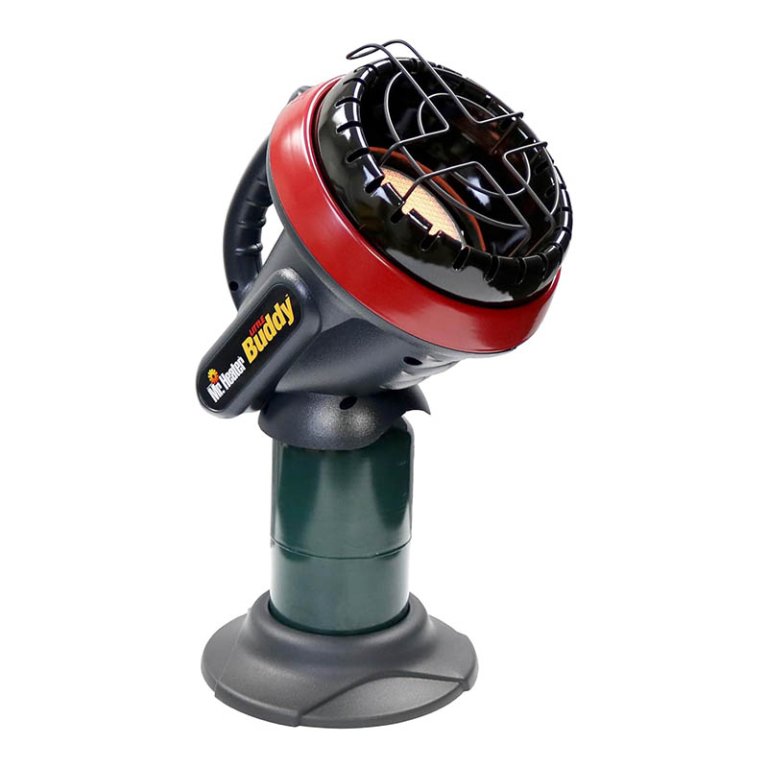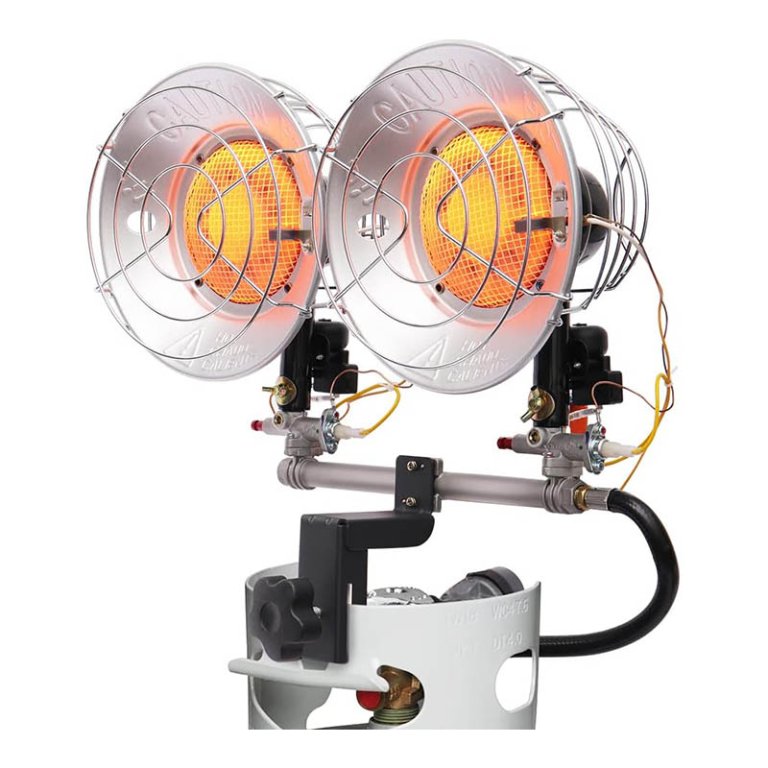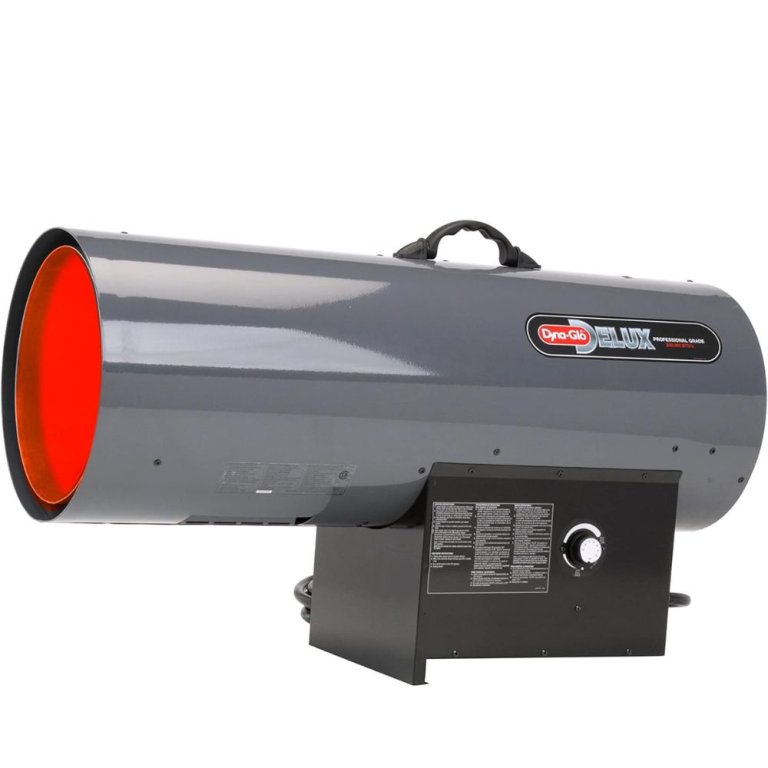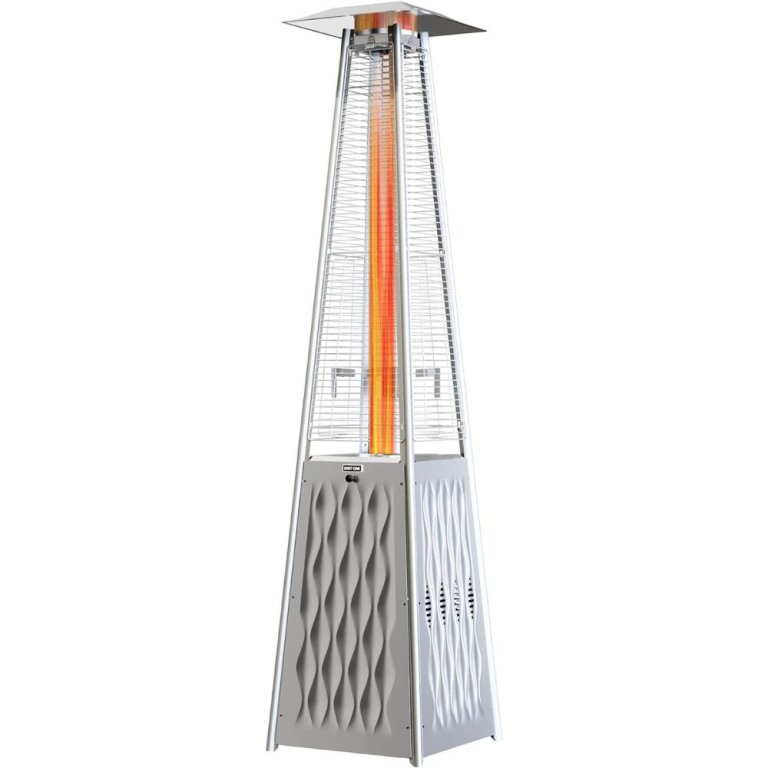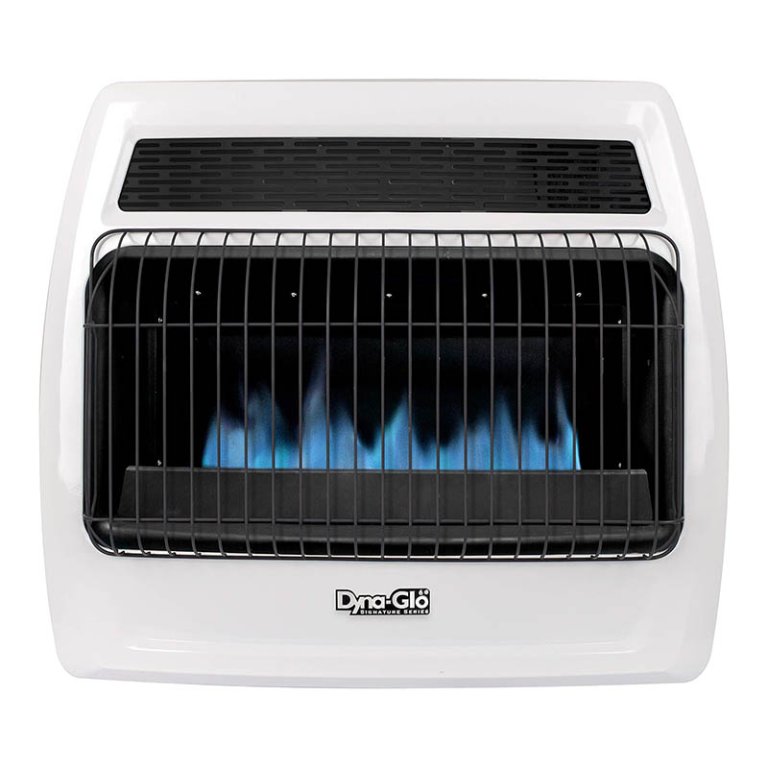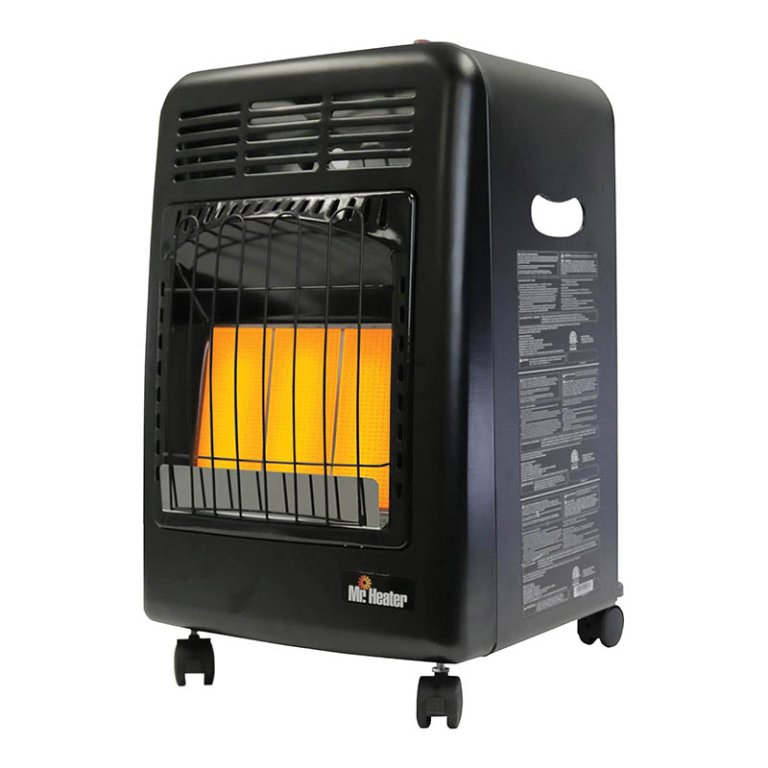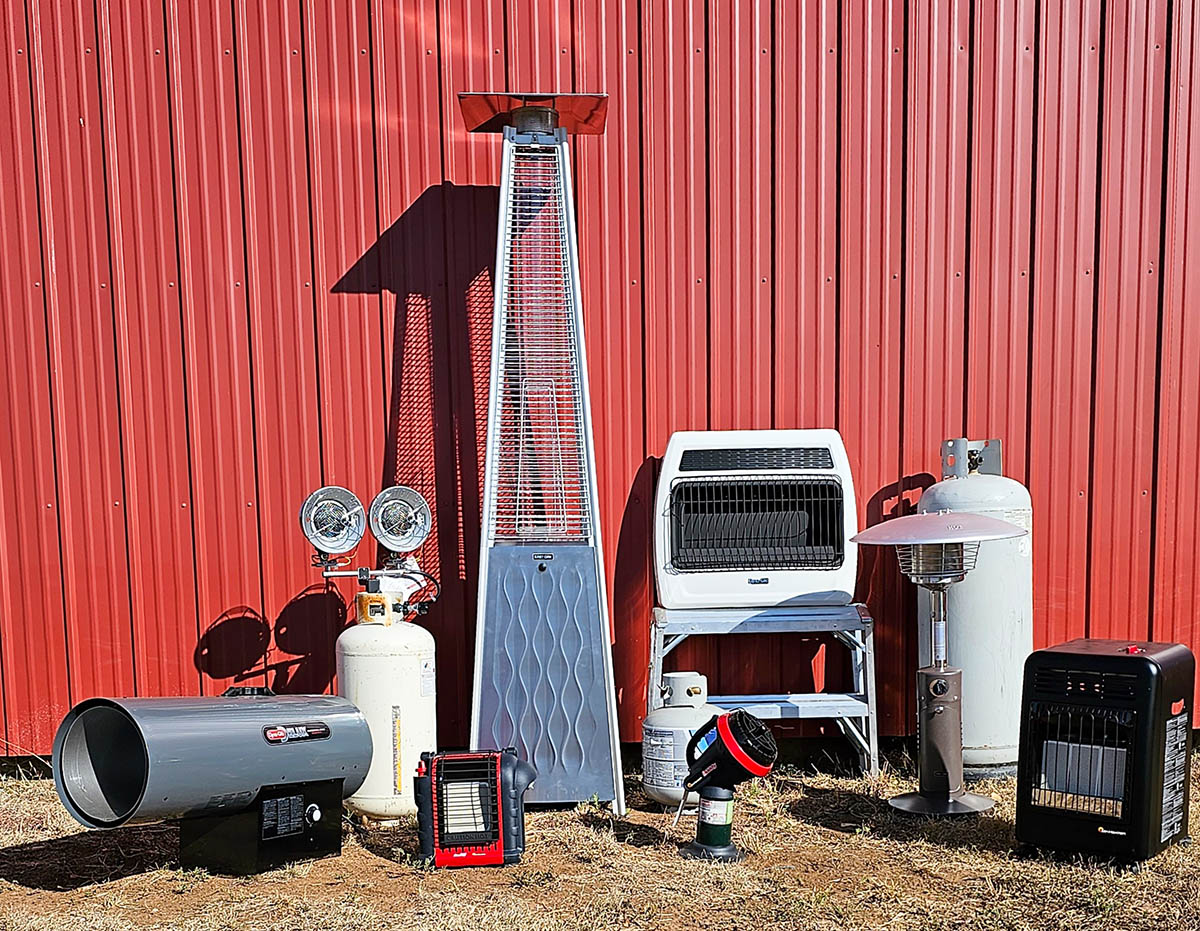

We may earn revenue from the products available on this page and participate in affiliate programs. Learn More ›
Best Overall
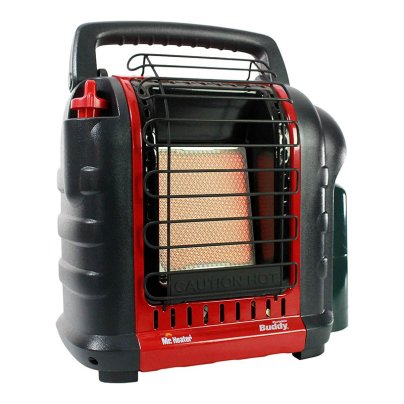
Mr. Heater MH9BX Portable Buddy Heater
Best Bang for the Buck

Mr. Heater MH4B Little Buddy Propane Heater
Best Tank Top
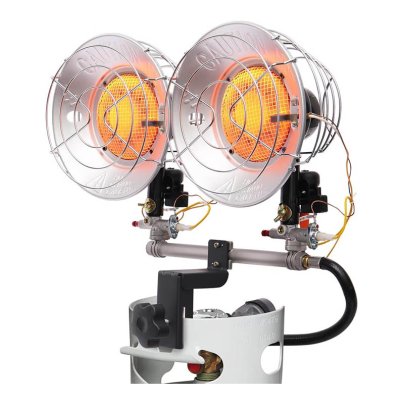
Camplux Outdoor Tank Top Propane Heater
Propane heaters are an incredibly effective way to quickly heat a medium to large living space using liquid propane (LP) as fuel, making them suitable for a range of heating needs.
We researched more than 30 propane heaters and then selected several top-rated models for hands-on testing by the Bob Vila test team. We also consulted Alex Rushwin, technical service manager for Enerco Group, manufacturer of the ever-popular Mr. Heater line of propane heaters.
Today’s propane heaters burn cleaner and are safer than early models. “Mr. Heater patented the first indoor propane heater back in 2000,” Rushwin says, “and that was a huge step forward for portable propane heat.” Since then, Mr. Heater has improved on the technology, and their indoor heaters are safer than ever.
Finding the best propane heater for your purposes depends on how you will use it, where it will be used, the heat output you need, and the important safety features included. Our favorite of the bunch was Mr. Heater’s MH9BX model for its portable design and quick heating capabilities. While intended use varies, each of the following models excelled in our hands-on tests and earned its spot in this lineup of the best propane heaters.
- BEST OVERALL: Mr. Heater MH9BX Portable Buddy Heater
- BEST BANG FOR THE BUCK: Mr. Heater MH4B Little Buddy Propane Heater
- BEST TANK TOP: Camplux Outdoor Tank Top Propane Heater
- BEST HEAVY-DUTY: Dyna-Glo Delux 300,000 BTU LP Forced-Air Heater
- BEST PATIO: East Oak Pyrol Outdoor Patio Propane Gas Heater
- BEST INDOOR: Dyna-Glo 30K BTU LP Blue Flame Vent-Free Heater
- BEST FOR GARAGE: Mr. Heater MH18CH 18,000 BTU Cabinet Heater
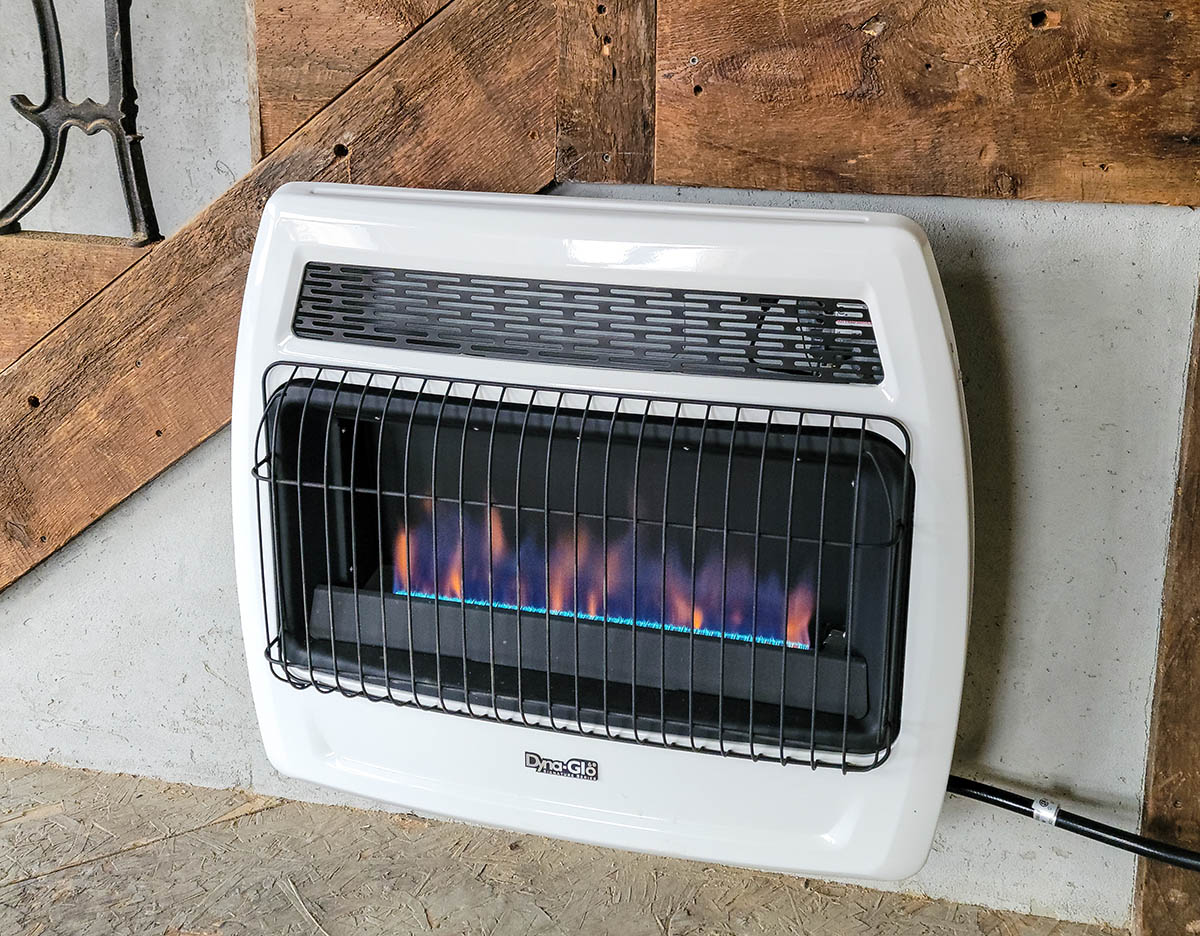
Product Comparison
| Type | Heating Power | Weight | Safety Features | |
| Mr. Heater MH9BX Portable Buddy Heater | Radiant | 4,000 or 9,000 BTUs | 10.6 pounds | Tip-over shutoff, ODS |
| Mr. Heater MH4B Little Buddy Propane Heater | Radiant | 3,800 BTUs | 5.8 pounds | Tip-over shutoff, low-oxygen sensor |
| Camplux Outdoor Tank Top Propane Heater | Radiant | 9,000 to 30,000 BTUs | 5.07 pounds | Tip-over shutoff |
| Dyna-Glo Delux 300,000 BTU LP Forced-Air Heater | Convection (forced air) | 300,000 BTUs | 32.6 pounds | Overheat shutoff, delayed ignition shutoff |
| East Oak Pyrol Outdoor Patio Propane Gas Heater | Radiant | 48,000 BTUs | 57.3 pounds | Anti-tilt, flame-out protection, low-oxygen sensor |
| Dyna-Glo 30K BTU LP Blue Flame Vent-Free Heater | Convection | Up to 30,000 BTUs | 24.6 pounds | Overheating shutoff, low-oxygen sensor |
| Mr. Heater MH18CH 18,000 BTU Cabinet Heater | Radiant | 6,000; 12,000; and 18,000 BTUs | 23 pounds | Tip-over shutoff, low-oxygen sensor |
Our Top Picks
The following are some of the best propane heaters on the market in their respective categories. They were selected for quality and price, with a focus on the shopping considerations mentioned above.
Best Overall
Mr. Heater MH9BX Portable Buddy Heater
What We Like
- Propane bottle is easy to connect
- Portable and compact design
- Comes with an oxygen-depletion sensor and tip-over shutoff
What We Don’t Like
- Lower BTU range not sufficient for spaces over 250 square feet
Product Specs
- Type: Radiant
- Heating power: 4,000 or 9,000 BTUs
- Weight: 10.6 pounds
- Safety features: Tip-over shutoff, ODS
This Bob Vila Approved product carries our brand’s highest level of recommendation.
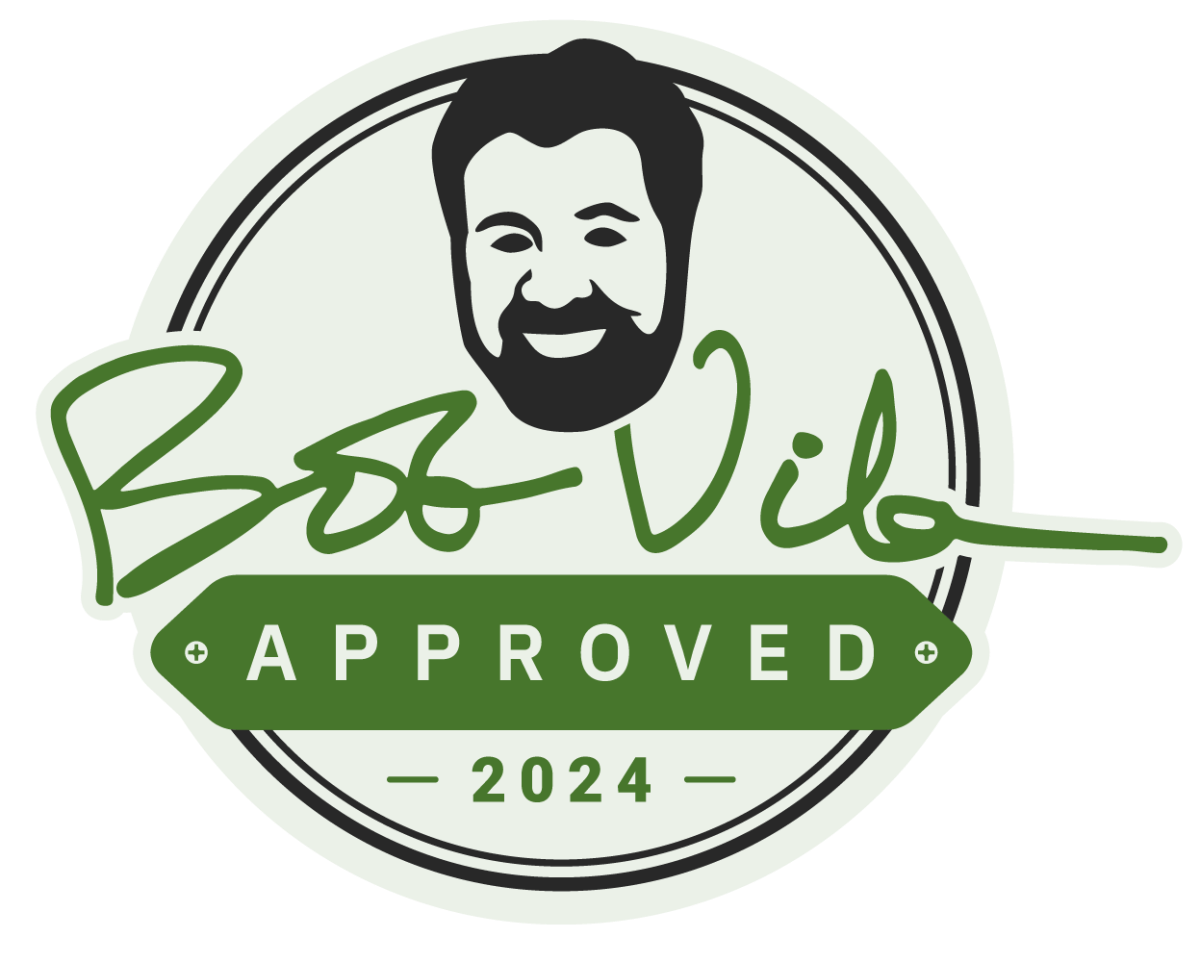
Bob Vila Approved recognizes the household and DIY products that impressed us most in our real-world testing and that exemplify core values of the Bob Vila brand, including craftsmanship, innovation, and value for the dollar. Winners of this designation come recommended by our professional review team and are personally approved by Bob Vila.
Rushwin says that Mr. Heater’s Buddy series is one of its most popular sellers, and it’s been one of our favorites for years, as it was our standby heater for mountain camping adventures. The MH9BX was new to us though, and we were impressed right off the bat by the new swivel-connector feature that allowed us to twist the 1-pound propane bottle into position with ease. Some of the older models didn’t have the swivel connector, so good going, Mr. Heater! That’s a huge plus.
The Buddy MH9BX has an attractive design with a sturdy fold-down carrying handle that makes it easy to pick up and take wherever it’s needed. The heater has a choice of two heat outputs, either 4,000 or 9,000 BTUs, making it capable of heating up to 225 square feet of space. We tested the MH9BX in a 180-square foot room, and on high, it raised the temperature from 70 to 78 degrees Fahrenheit in just 30 minutes. It’s a radiant heater, so it warms objects, not the air, but the heated objects in turn warmed up the room.
This heater is able to burn propane at near-100 percent efficiency, which makes it an option for indoor applications. Its oxygen-depletion sensor (ODS) ensures that the oxygen level never drops to a dangerous point. Plus, its tip-over safety mechanism immediately shut the heater off when we tipped it over.
Read our full review: Mr. Heater MH9BX Portable Buddy Heater
Get the Mr. Heater MH9BX propane heater at Amazon, The Home Depot, or Walmart.
Best Bang for the Buck
Mr. Heater MH4B Little Buddy Propane Heater
What We Like
- Lightweight and portable
- Reliable emergency heat source for indoor use
- Warms nearby objects and people
- Good safety measures
What We Don’t Like
- Radiant heat only
Product Specs
- Type: Radiant
- Heating power: 3,800 BTUs
- Weight: 5.8 pounds
- Safety features: Tip-over shutoff, low-oxygen sensor
Our second Mr. Heater pick is the Little Buddy MH4B, which provides instant warmth at an attractive price point. Not only is the Little Buddy easy on the wallet, but it’s also simple to carry along when tailgating or just spending a little time bird-watching on a chilly day. It’s an excellent pick for supplemental indoor emergency heat, too. It burns clean and comes with a low-oxygen sensor that shuts it off if the oxygen level in the space drops to an unhealthy level.
The Little Buddy is designed to heat spaces up to 95 square feet, so we tested it in a bathroom, where it raised the room’s temperature by 15 degrees Fahrenheit in 30 minutes. Keep in mind that temperature increases will vary depending on the type of space, starting temperature, and whether the space is insulated or if it is being used as a tent heater without any insulation.
Like its big brother, the Buddy heater, Little Buddy is a radiant propane heater, and it warms nearby objects—and people. We found it excellent for warming our gloved hands outdoors, but it doesn’t blow hot air. The tip-over shutoff turned the heater off immediately when we laid the Little Buddy on its side.
While this little propane heater isn’t powerful enough for warming up large rooms, it’s an excellent small heater that’s safe for indoor use.
Get the Mr. Heater Little Buddy propane heater at Amazon or Walmart.
Best Tank Top
Camplux Outdoor Tank Top Propane Heater
What We Like
- Easily attaches to the propane tank
- Dual burner design; adjustable operation
- Provides significant radiant heat
What We Don’t Like
- Requires ventilation
Product Specs
- Type: Radiant
- Heating power: 9,000 to 30,000 BTUs
- Weight: 5.07 pounds
- Safety features: Tip-over shutoff
Tank tops aren’t just sleeveless attire for hot summer days. The Camplux Tank Top propane heater attaches to the top of a 20-pound or larger propane tank, and it quickly warms nearby objects or people—making it a handy heater for outdoor use or in ventilated shops and garages.
This is not an in-home model; the manufacturer suggests having a 0.5-square-foot opening for fresh air for every 15,000 BTUs being used. For example, if using both burners simultaneously on the highest setting (total of 30,000 BTUs), opening a 24-inch wide window just 1 inch would be sufficient. A door does not need to be wide open; just crack a window.
It comes with two radiant burners and attaches securely to the steel collar at the top of a standard propane tank. It was easy to connect to the tank and held firmly throughout our tests. We tested the Camplux dual-burner propane heater in a mobile workshop with an open-end wall.
It was simple to connect to the top of the propane tank and easy to light—but be aware this is a manual-light heater; we had to insert a lit match in a hole in the side of the reflective cover and then slowly turn on the propane. It fired right up. Each side lights and operates independently.
The Camplux Tank Top heater provided a lot of radiant heat—so much that we couldn’t stand any closer than about 4 feet without feeling uncomfortably hot when running it on the high setting. On the low setting, it was more tolerable, but it still puts out a lot of heat. It didn’t appreciably raise the temperature in the mobile shop, but that was due to one end of the shop trailer being completely open, which allowed cool breezes to blow through.
This is a powerful, no-frills propane heater for use in a ventilated workshop or on a jobsite.
Get the Camplux propane heater at Amazon.
Best Heavy-Duty
Dyna-Glo Delux 300,000 BTU LP Forced-Air Heater
What We Like
- A high-performance model
- Adjustable thermostat
- Reliable electronic ignition
- Carry handle and cord wrap
What We Don’t Like
- Requires an electrical outlet to operate
- Must be connected to a 100-pound or larger propane tank
Product Specs
- Type: Convection (forced air)
- Heating power: 300,000 BTUs
- Weight: 32.6 pounds
- Safety features: Overheat shutoff, delayed ignition shutoff
Here come the big boys in the propane heating world! The Dyna-Glo Delux isn’t a heater that most will want to keep in a living room unless the living room happens to be around 7,000 square feet in size, but it is an excellent option as a space heater in a large garage, barn, warehouse, or worksite because it can produce up to 300,000 BTUs.
We took the Dyna-Glo to our shop and connected it to a propane tank—but nothing happened. It didn’t fire up. We saw the pilot light flicker inside and smelled propane, which led us to shut down the unit promptly, but there were no flames or heat. We suspected the reason might be a too-small propane tank, and we were right—the instruction manual specifies connecting the Dyna-Glo to a tank no smaller than 100 pounds. So, that’s what we did; we hauled in a larger tank and tried again, and the heater fired right up.
And, boy did it put out the heat! Within 30 minutes, our shop went from a chilly 56 degrees Fahrenheit to 72 degrees Fahrenheit. This is a forced-air (convection) heater—a strong fan blows heat out of the front end of the combustion chamber at a forceful rate.
Ventilation is a must: The manufacturer recommends 11.25 square feet of open-air space when running the heater at maximum force. It features a safety shutoff if it overheats and another shutoff that keeps the heater from igniting if propane has been circulating through. The latter is to prevent the type of fireball that can result if propane gas is in the combustion chamber before it ignites.
The Dyna-Glo must also be plugged into an electrical outlet to power its heavy-duty fan. While it weighs 32 pounds, it has a carrying handle and a built-in cord wrap, making transportation easier. Overall, this powerful heater will keep large areas toasty warm, but don’t use it in the house.
Get the Dyna-Glo Delux propane heater at Amazon or The Home Depot.
Best Patio
East Oak Pyrol Outdoor Patio Propane Gas Heater
What We Like
- Embossed design in stainless steel
- Heats up in just 5 minutes
- Efficiently heats nearby objects and people
- Propane tank is concealed right inside the base
- Adds a measure of ambience
What We Don’t Like
- Assembly is complex and time-consuming
Product Specs
- Type: Radiant
- Heating power: 48,000 BTUs
- Weight: 57.3 pounds
- Safety features: Anti-tilt, flame-out protection, low-oxygen sensor
The East Oak patio heater offers ambience and is a stunning focal point for a chilly outdoor winter gathering, but plan on spending at least an hour or more assembling all the parts. As we were setting it up, more than once we wondered whether the heater would be worth the hassle of trying to peel off the stubborn protective blue film—with some pieces coming off in tiny bits rather than sheets—and then putting together literally everything on the unit.
Once we got the East Oak pyramid heater together and fired up, we changed our minds—it was worth it. The glass cylinder in the pyramid’s center showcases beautiful dancing flames that rise to the upper vent, where the heat is reflected downward and outward toward anyone standing nearby. The outdoor temperature and breezes will affect its heating range, but we could feel warmth when standing about 10 feet away.
This is strictly an outdoor propane heater, so don’t take it in the house—it needs ample ventilation. It comes with tip-over shut-off protection and also shuts down propane flow if the flame goes out to keep propane gas from leaking into the air. We tested both, and they worked well. It connects to a 20-pound propane tank that fits right inside its base.
The East Oak pyramid heater also provides a good amount of light, so it can be used as supplemental lighting for outdoor entertaining. We really liked this tower heater, but we would have been happier with our experience if it had come at least partially assembled. It’s a lot to put together for even those familiar with assembling tools and appliances.
Get the East Oak propane heater at Amazon or Walmart.
Best Indoor
Dyna-Glo 30K BTU LP Blue Flame Vent-Free Heater
What We Like
- Designed for indoor use
- Slim profile fits neatly on interior walls
- Equipped with low-oxygen sensor
- 5 heat settings and thermostat
What We Don’t Like
- Cannot install the heater too close to side walls or ceiling
- Propane tank should be located outdoors
Product Specs
- Type: Convection
- Heating power: Up to 30,000 BTUs
- Weight: 24.6 pounds
- Safety features: Overheating shutoff, low-oxygen sensor
Those looking for a designated source of propane heat for indoor use, such as to warm a chilly basement, may need to look no further than the Dyna-Glo wall-mount propane heater. It features a slender profile that fits nicely on an interior wall, and it uses a gentle fan to help circulate heat.
No assembly was necessary with this wall-mount heater, but we had to install brackets on the wall and then hang the heater on the brackets. Just make sure the brackets are level and the heater is not positioned too near something flammable. The manufacturer recommends locating the heater a minimum of 8 inches away from perpendicular walls on either side of the heater and a minimum of 36 inches below the ceiling. In addition, keep all furniture, draperies, and other items a minimum of 36 inches away from the front of the heater.
We ran a long propane hose from an outdoor tank (don’t use propane tanks inside a house) and then fired the heater up using its simple push-button ignitor. It produces up to 30,000 BTUs of heat on the high setting but can be turned down when less heat is desired. A control knob features five heat settings and serves as a thermostat to turn the heater on and off. We found it increased our 200-square-foot test space 11 degrees Fahrenheit in 30 minutes, but results will vary depending on room size and ambient temperature.
This Dyna-Glo comes with an automatic overheating shutoff as well as a low-oxygen sensor. It’s a nice little heater that would serve well as a source of emergency heat during a power outage or for supplemental heat.
Get the Dyna-Glo vent-free propane heater at Amazon, The Home Depot, or Walmart.
Best for Garage
Mr. Heater MH18CH 18,000 BTU Cabinet Heater
What We Like
- Efficient radiant heating
- Offers 3 heat settings
- Rugged steel casing with 4 heavy-duty swivel wheels
What We Don’t Like
- Limited coverage for spaces more than 450 square feet
Product Specs
- Type: Radiant
- Heating power: 6,000; 12,000; and 18,000 BTUs
- Weight: 23 pounds
- Safety features: Tip-over shutoff, low-oxygen sensor
For many DIYers, the garage is the only covered space available for working on projects. Losing that space to cold weather is avoidable when using a propane heater like this one from Mr. Heater, which can heat a space of up to 450 square feet. The heater has three radiant-heat output settings, including a low setting of 6,000 BTUs; a medium setting of 12,000 BTUs; and a high setting that reaches 18,000 BTUs.
We put the MH18CH in a corner in a three-stall garage for testing. It was a chilly day, and also cold the day before testing, so the temperature in the garage was 53 degrees Fahrenheit. We turned the MH18CH on the high setting, and within 30 minutes, the temperature in the nearest stall rose to 61 degrees Fahrenheit, but the farthest stall registered just 54 degrees Fahrenheit. This was in an uninsulated garage, and results would vary in different-size garages or an insulated garage.
The propane heater has a space in the back designed to accommodate a 20-pound propane tank so that users can move the entire unit around easily on the four attached swivel wheels. This product also has a tip-over safety mechanism and an ODS sensor to automatically shut down the heater if the oxygen level gets too low.
This is a nice portable little propane heater that can be rolled around a garage or shop, which is a convenient way to heat the space where work is being done.
Get the Mr. Heater MH18CH propane heater at Amazon, Lowe’s, or The Home Depot.
Jump to Our Top Picks
How We Tested the Best Propane Heaters
We examined several factors when choosing the propane heaters we wanted to test. Safety was essential, and beyond that, we looked at heat output (British thermal units, or BTUs), heater type (convection vs. radiant), ease of use, and cost. We considered the brand; after all, Mr. Heater and Dyna-Glo are well-respected names in the propane heater world. Still, we didn’t automatically dismiss smaller niche brands if the heaters were durable, safe, and highly rated.
The actual testing of the heaters was pretty simple; after all, they serve one primary purpose: to warm up a space or warm up nearby objects and people. We noted how easy (or challenging) the heaters were to assemble, and then we connected them to propane tanks or bottles, as called for by the manufacturer.
We tested the heaters’ ignition features and noted how much heat they produced and how quickly. Each propane heater was scored using a rubric. The better the heater performed on a test, the more points we awarded. After testing, we averaged the points to determine our top pick and to establish the best uses for each model.
What to Consider When Choosing a Propane Heater
Before choosing the best propane heater for a patio, garage, or home, take a look below to learn about some of the most important shopping considerations that can help you select a heater that suits your needs.
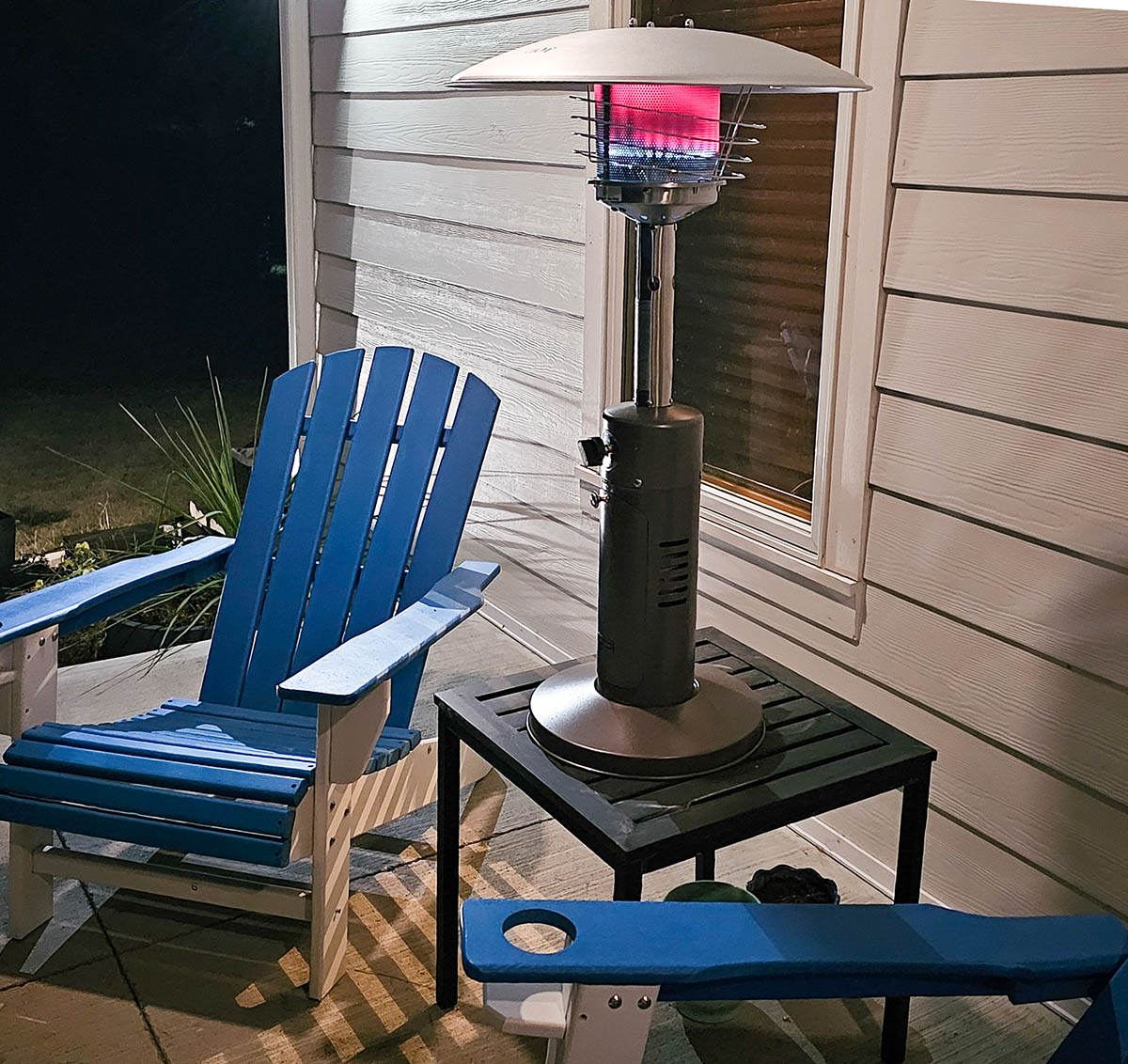
Ignition
Propane heaters must have the pilot light ignited before the unit will produce any heat. Keep in mind that igniting the pilot light requires the gas to be turned on. These units typically have one of three different ignition methods: manual ignition, push-button ignition, and continuous ignition.
- Manual ignitions require users to light the pilot light with a long match or a barbecue lighter. Liquid propane heaters with this ignition type are usually more affordable.
- Push-button ignitions are the most common ignition option for indoor propane heaters. After turning the gas on, push a button for the indicated amount of time so that an integrated sparking mechanism will light the pilot light. (Before using, make sure to follow all of the safety considerations listed in the safety section below and in the manufacturer’s directions for indoor propane heaters.)
- Continuous ignitions are more common on large, commercial propane heaters. This style of ignition will automatically begin sparking when the gas is on. This feature prevents the hazardous build-up of propane gas that can occur if the delay is too long between sparks. After the pilot light is lit, the continuous ignition stops creating sparks.
Location
One of the main benefits of having a propane heater is that they are usually portable and can be connected to a small or large propane tank. It’s relatively easy to take a portable propane heater to another room, to the garage, or to the outdoors. However, if the heater will be used in one or two main locations, the product needs to be suited to those main areas.
In general, only heaters that accommodate 1-pound propane bottles are suitable for use indoors. Those that connect to 20-pound or larger propane tanks should be connected to a hose that’s long enough to locate the tank outdoors. The exception is models designed to hold 20-pound tanks that can be used in ventilated garages or workshops. Read the manufacturer’s safety precautions carefully.
The best outdoor propane heaters have enough heating power to deal with the rapid dissipation of heat that will naturally occur in a wide-open space. For those who want a great camping heater, a large outdoor option might be best. An alternative is a handheld propane heater that will keep people warm instead of heating the entire area. Some users may prefer to have a wall-mounted propane heater to save floor space and to keep the heater out of reach from kids and pets.
Portability
Portability is one of the features that sets propane heaters apart from electric or natural gas heaters, but not all propane heaters can really make the claim that they are portable. Some propane heaters that have built-in fans or other electronic components will typically need to be plugged into a power source, despite their main fuel being propane.
If portability is a key personal factor, then a propane heater that doesn’t need an electrical power source is often a better choice. A smaller size and a carrying handle will make it easier to pick up and move around. However, if a larger heater is needed for commercial or industrial applications, there are powerful propane heaters that sit on a set of wheels. The wheels make it easier to move the heater around a space.
Safety
Whenever using any type of heating device, it’s critical to be certain that all the necessary precautions are being followed to ensure that no one is at risk. This includes the proper storage of propane tanks and adequate ventilation when the heater is in use. There are other safety features to consider like overheating protection, a tip-over mechanism, and an oxygen-depletion sensor.
- The overheating protection feature senses the rising temperature and shuts down the heater to prevent damage to the room or any flammable objects and to stop internal damage to the heater.
- Tip-over mechanisms protect users from the risk of fire if the heater falls over. The impact of the fall is what activates this feature, turning off the heater so that it cannot start a fire by igniting any nearby items, like carpeting or curtains.
- An oxygen-depletion sensor is designed to measure the available oxygen within the local vicinity. If the oxygen level drops below a specified point, the heater will automatically turn off to allow the oxygen to increase and prevent the risk of carbon monoxide poisoning.
BTU Capacity
The heat output of a propane heater is normally measured in BTUs, with each BTU equal to the heat it would take to increase the temperature of 1 pound of water by 1 degree Fahrenheit. The BTU rating of a propane heater can range widely from as low as 3,000 BTUs to higher than 300,000 BTUs. The best BTU output for a heater will depend on how and where it will be used. For example, outdoor heaters naturally require a higher heat output.
Before deciding on a product, measure the room that needs to be heated. To help figure out which heater is best suited to a particular need, most manufacturers list the BTU output and include the approximate square footage that is appropriate for the heater. For example, a heater with a maximum of 10,000 BTUs may heat a space of approximately 250 square feet, while a unit that has a maximum of 18,000 BTUs will have no problem with 450 square feet.
Size
Size is a factor that can impact where the heater will be used, how it is set up, and whether it’s a portable heater or a stationary unit. A small heater can often be picked up and carried around without a problem. Always check with the manufacturer, but smaller units usually can be used both indoors and outdoors without producing harmful fumes, as these smaller heaters tend to burn fuel at a slower pace.
Large propane heaters can take up a lot of space, which can become a safety hazard if they are too close to flammable objects in the room. Their size also may affect the placement in the room, or it may limit the product to outdoor use. However, a larger propane heater is able to hold an equally large propane tank so it won’t need to be replaced as frequently as the fuel in a small heater.
The Advantages of Owning a Propane Heater
There are many advantages to owning a propane heater. One of the defining features is that these heaters are typically fueled by a portable container of propane, giving users the freedom to carry them from room to room or even take them out into the middle of the woods when camping. Unless the heater has a built-in fan unit, users won’t have to be tethered to a power outlet with this heater.
There is also the benefit of cost savings with a propane heater. This is because the average cost of electricity is higher than the average cost of propane. With a propane heater, there is a wide range of heat-output options that can increase well beyond the capabilities of an electric or natural gas heater, allowing users to rapidly heat up large outdoor spaces.
- Unless the heater has a built-in fan unit, propane heaters don’t normally need to be plugged into a wall, allowing users to move the heater wherever it’s needed.
- Propane is more cost-effective than electricity for heating an area, so users save money with this style of heater.
- The same high heat outputs aren’t available from electric heaters or natural gas heaters as from a propane heater.
FAQs
Whether you want to supplement heat for a greenhouse or have access to a source of emergency heat when the power goes out, propane could be the answer. If you still have questions about propane heaters, read below to find the answers to some of the most commonly asked questions.
While it’s unlikely, if the propane heater is not designed for indoor use, it could put off some carbon monoxide fumes. If you are using the heater in a larger enclosed space like a garage, make sure that you have a carbon monoxide detector installed to warn you of any danger.
It is generally considered to be a bad idea to have a lit propane heater in your bedroom because it will quickly burn up the oxygen in an enclosed room, which could cause the oxygen levels to drop. Fortunately many of today’s indoor propane heaters, such as those made by Mr. Heater, come with low-oxygen sensors that shut the unit off if the oxygen level in the room drops.
Outdoor propane heaters need proper ventilation to ensure that you don’t get carbon monoxide poisoning. Indoor propane heaters—often called “vent-free” heaters—do not put off carbon monoxide, but ventilation is still necessary to ensure healthy oxygen levels in the room.
While it’s essential to always follow the manufacturer’s directions for safe use, here are the basic steps for how to light a propane heater:
1. Turn on the propane tank.
2. Adjust the knob on the front or side of the heater to the “start” or “light” position.
3. Push the knob in and hold it to send gas to the unit. Continue holding the knob in for 30 seconds to ensure adequate gas flow.
4. Press the igniter button firmly until you hear a click. You may need to press it more than once on some heaters.
5. Adjust the control knob to the desired temperature.
Meet the Tester
Glenda Taylor is a product tester and writer specializing in the construction, remodeling, and real estate industries. She and her husband own a general contracting company, and Taylor is experienced in both residential and commercial building applications. She tests a wide range of power tools as well as other home improvement, household, and lawn-and-garden products.
Additional research provided by Timothy Dale and Bob Beacham.
